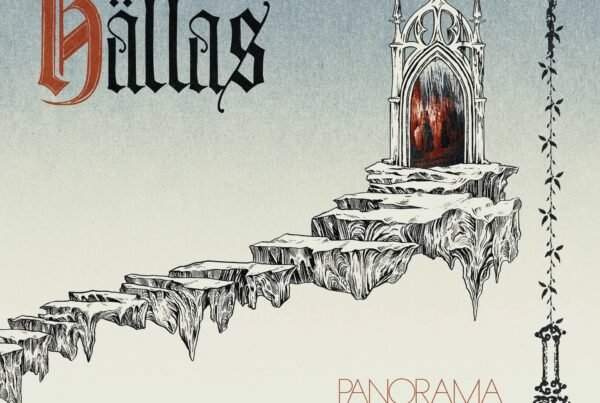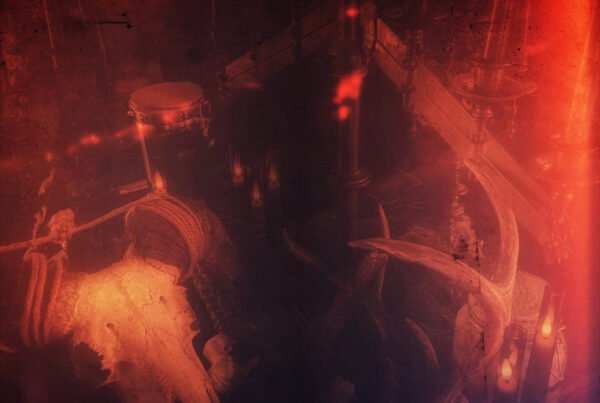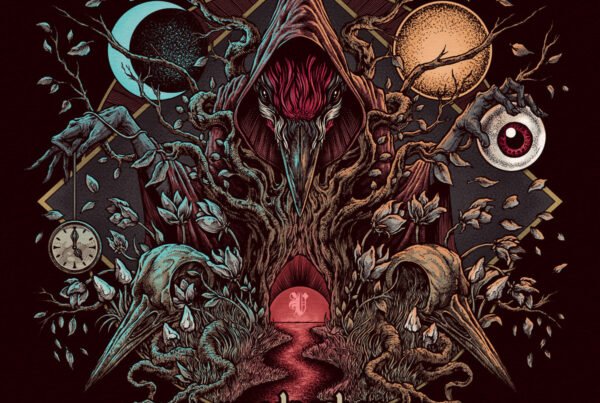Shifting proves that Frank Popp and his talented ensemble are still as relevant and proficient today in performing some of the wildest, most sentimental renditions of ’60s funk and Northern soul.
Release date: January 27, 2023 | Head Records | Facebook | Bandcamp
Formed by the DJ himself, initially as a one-man project, the Frank Popp Ensemble eventually evolved into a full line-up with the aim of reimagining the sounds of late ’60s funk and Northern soul with a nostalgic, yet progressive kind of groove. The German ensemble gained much popularity around the early 2000s, where they were recognised for hit singles “High Voltage” (2001) and “Hip Teens Don’t Wear Blue Jeans” (2003), the former being included in the soundtrack of the film Password: Swordfish, and the latter reaching the German charts top 20 and being featured in a commercial for Coca-Cola. Frank Popp has often pushed the boundaries of the groove-ridden beat of soul and funk music, adding elements of Krautrock and garage rock, and his equally talented cast of musicians add their own flair to the music, notably the ensemble’s lead vocalist (alongside Frank) Sam Leigh-Brown, whose voice is reminiscent of legendary soul and Motown darlings like Alice Clark and Yvonne Baker. With the last two albums, Ride On! (2001) and Touch and Go (2005), seeming like a distant memory, the Frank Popp Ensemble are dusting off those old dancing shoes and ready to bring the world of soul, funk, and disco to a new generation of listeners with Shifting.
A notable thing about this record that is perhaps rather different to the group’s previous releases is the sheer amount of guest appearances spread throughout these tracks, including Jesper Munk, Anna Glahn, Kat Ott, Lucy Kruger, Aydo Abay, and of course Leigh-Brown, all of which add their own flair and style to each of these pieces, offering some new directions for the music to go in. Munk, for example, ups the groove on dance-crazy tracks such as “Torn Up”, a brasstastic disco song that ensues rhythmic energy, or “Born to Lose”, which brings more pop elements to the table and dishes them out with elegance and buoyancy. On the other side of things, “See it Coming” (featuring Glahn) attempts to demonstrate a more sombre tone with more jazzy modal progressions, certainly giving off Amy Winehouse vibes, as is the case with the mysterious “Sad But True” and funkier “Dragonaut”, which the singer also features on.
On the more progressive side of things, you’ve got tracks like “Drifting” (feat. Kruger) that emulates a soft ballad yet contains various instrumental passages that get layered up in a maelstrom of lenient timbres and awakening textures. Some of these kinds of tracks do, however, maintain a somewhat soulful disco remedy to their sound. Take for instance “Vertigo” (feat. Abay), which keeps that laid-back backbeat in the rhythm section; an acoustic guitar accompaniment fills the atmosphere and wanders very close into Pink Floyd territory, whilst crazy kazoo and bell chimes spice things up.
It should also not be ignored that the guest vocal tracks by Sam Leigh-Brown come across as some of album’s more accessible moments, as they are open for listeners to really dig into. “Ain’t No Love In The Heart Of The City” is a sassy anti-love song that calls out the emptiness of the bustling busy city streets and the sense of longing that is hoped for by the protagonist of the song. “Under the Sea”, on the other hand, is performed with more warmth and delicacy amidst Popp and Leigh-Brown’s duet that delves into a fantasy tale of love and togetherness between the two vocals; it’s matched with a beautiful orchestral sounding arrangement to supplement this restful tune. Other tracks in which the ensemble really shine can also be recognised on the exotic sounding “Piérdete”, where whimsical percussions from bell chimes to tambourine fills are a nice driving factor whilst the other members take turns jamming out some nice melodies between Jürgen Dahmen’s skillful piano and Lele Lugosi’s reggae-felt guitar chords.
To suggest this record is just a recreation of the ‘good ol’ days’ with ’60s and ’70s disco being reimagined would probably be an injustice to the work of Frank Popp, his talented band, and the many who featured on thee tracks. It’s not just about recreating the magic of the Motown-era for Frank Popp, nor is it about taking something old and just rebranding it for a new audience; rather, it’s about embracing the feel of this music and creating new directions for it to go, allowing one to add their own unique flair, and above all, to just have fun with genres of music that others would often hide their enjoyment of.






